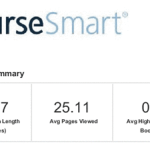McGraw-Hill Executive Speaking About Big Data: “Don’t look at us, look at Joe Camel”
By Paul Glader on August 17, 2013
Domestic, Ebooks, Education Quality, Ereaders, Ethics, Friend, Fraud, or Fishy, K-12, Publishers & Curriculum, Required, Textbooks
By Anya Kamenetz, The Hechinger Report
Jeff Livingston is a senior VP at McGraw-Hill Education, one of the “Big Three” education companies along with Pearson and Houghton Mifflin Harcourt. The privately held company has offerings that span textbooks, Common Core-aligned assessments and adaptive learning.
In the course of a free-wheeling conversation last week for my upcoming book, Livingston and I got onto the topic of student data and security, which has been much in the news lately. InBloom, the beleaguered cloud-based infrastructure service for making pooled student data available to third-party vendors, has been subject to claims that it has “”stepped in it on the issue of student privacy,” according to one report. And last month a privacy group called EPIC presented arguments against the Department of Education in federal district court, challenging certain broadening of exemptions to FERPA, the law that governs student privacy, on behalf of new technology organizations including InBloom.
McGraw-Hill’s offerings along these lines include Acuity, which is billed as a “comprehensive K-12 assessment solution that measures the deepest levels of student learning aligned to Common Core state standards” promising “data-driven instruction” by integrating student records with assessment results.
The technology’s potential, Livingston says, is enormous.
“Think about what’s happening in data right now – Target knows you’re pregnant before you do, because of subtle changes in how often you buy and where you are in the store. When we finally get around to applying these statistical tools in education, it will be possible to track my understanding of algebra to the professor who taught my algebra teachers.”
That’s a bold claim, certainly. But what about privacy? Livingston’s number one defense: education companies are far from the worst offenders on student privacy. In most cases, parents voluntarily share far more information on their children than companies like his have access to.
“The people worried about student privacy are fighting the wrong war,” he told me. “They’re asking who knows that Anya made a B in algebra. They should be asking, why is there a cartoon camel on the billboard on the street across from the school?
If you’re a data scientist who wants information on students and you have to come to McGraw-Hill, or Pearson, or even the school for information, you are a bad data scientist indeed. EA Sports, Nike and Verizon know a whole lot more about your kid than I ever will. Think about the cell phone with your name in the backpack of your elementary school kid. Someone knows everywhere that kid has been–to which stores, and which games it downloaded, and which numbers it called. It’s not an education company who knows those things.”
Livingston has a point. Seventy-eight percent of teens, and 20 percent of 6-11 year olds in a separate survey, have a cell phone. According to the Campaign for a Commercial-Free Childhood (which, incidentally, is part of the campaign against InBloom), private companies spend $17 billion annually marketing to children. And the FTC reported last year on data collection by mobile phone apps marketed to children, saying 60 percent of the apps they surveyed that were were transmitting information to a third party like an advertiser network, while only 20 percent disclosed anything about such transmissions to users.
But Livingston’s attempt to paint student data collection as the lesser of two evils was undermined by what he said next.
“I think people who are worried about [education companies] are looking in the wrong direction because of the elaborate privacy laws that have been in place for a whole generation. School is the safest part of the data day of any student. You can come to me and ask what my privacy policies are. Ask the manager of your local D’Agostino [grocery store] what his privacy policy is and I think you’ll get some looks.”
It’s my guess that it’s exactly the idea of school as a child’s last remaining privacy refuge that has activists so worried. EPIC’s complaint about proposed changes to FERPA–those “elaborate privacy laws”–stems from suspicion about services like InBloom (although InBloom maintains that it’s fully compliant with existing regulation, with no changes in the law needed or sought). And, particularly in a high-stakes testing environment, data about my child’s school performance is just inherently more sensitive than data about which Pokemons she likes best.
This post was produced by The Hechinger Report, a non-profit journalism organization housed at Columbia University in New York City.
Related Posts


Tips & Pitches
Latest WA Features
-
Online Courses Are Expanding, Along With Questions About Who Owns The Material
-
Why Size Matters: Consolidation Sweeps Across US Higher Ed
-
Trend: Corporate U Employers Offering Just In Time Education To Workers
-
Subterfuge & Skullduggery In The College Rankings Game
-
“Instreamia” Shakes Loose Moss By Launching Spanish Language Mini-MOOC
Domestic, Education Quality, For-Profit, Friend, Fraud, or Fishy, K-12, Legislation, Opinion, Personalized Learning, Regulatory, Required, Universities & Colleges - Apr 29, 2014 - 0 Comments
Michael Horn: NCAA March Madness Followed By April Blunder In Online Learning
More In For-Profit
- The Economy Is Forcing Tuition To Fall Rapidly At Private, For-Profit Colleges
- Kamenetz: Jeb Bush As Controversial Leader Of Aspen Task Force on Learning & The Internet
- Columnist Ryan Craig: The Best Of Times Could Return As For-Profit Edu Invests
- Bubble Analysis: Trace Urdan on Why This Era of Ed Investing Could Be Different
- A Blended Path? How American Honors Cuts Cost of Four Year Degree by Over a Third
Community Colleges Cost of Education Domestic For-Profit Required Student Loans Universities & Colleges
Blended Learning, Domestic, Education Quality, Gamification, K-12, Open Source Education, Required, Startups, Technology - May 22, 2015 - 0 Comments
iCivics: Video Games as Middle School Social Studies Curriculum
More In Technology
- Online Education As A Postmodern Societal Response
- MakerBot Academy: A 3-D Printer In Every Classroom
- Michael Horn: A Look Behind The Curtain At How A MOOC Is Made
- Koller, Khan and Agarwal At The NYT’s Schools of Tomorrow Conference
- Video: New NESTA Report, Three Steps To Assess Digital Innovation in Education
Domestic, Education Quality, For-Profit, Friend, Fraud, or Fishy, K-12, Legislation, Opinion, Personalized Learning, Regulatory, Required, Universities & Colleges - Apr 29, 2014 - 0 Comments
Michael Horn: NCAA March Madness Followed By April Blunder In Online Learning
More In Friend, Fraud, or Fishy
- Online Education As A Postmodern Societal Response
- Apple Tightens Its 94% Choke-hold On The Education Tablet Market
- Michael Horn: Why Obama’s Proposals Won’t Entirely Revolutionize HigherEd
- Columnist Ryan Craig: The Curious Case Of HigherEd Accreditation
- McGraw-Hill Executive Speaking About Big Data: “Don’t look at us, look at Joe Camel”
Domestic Ebooks Education Quality Ereaders Ethics Friend, Fraud, or Fishy K-12 Publishers & Curriculum Required Textbooks










Reply